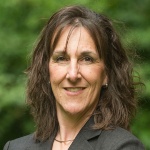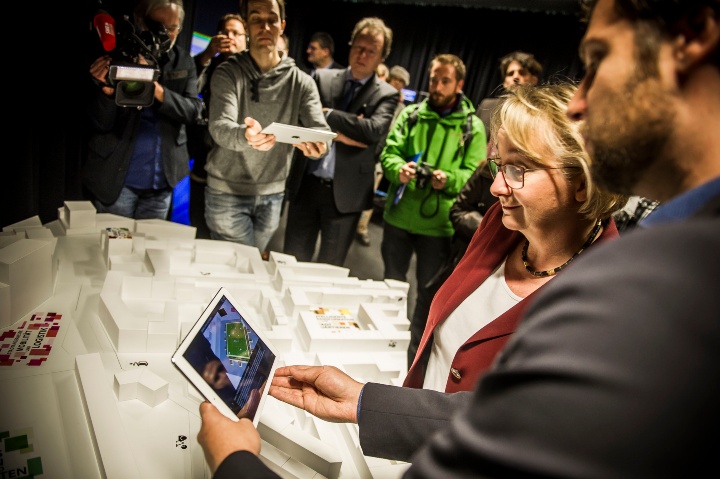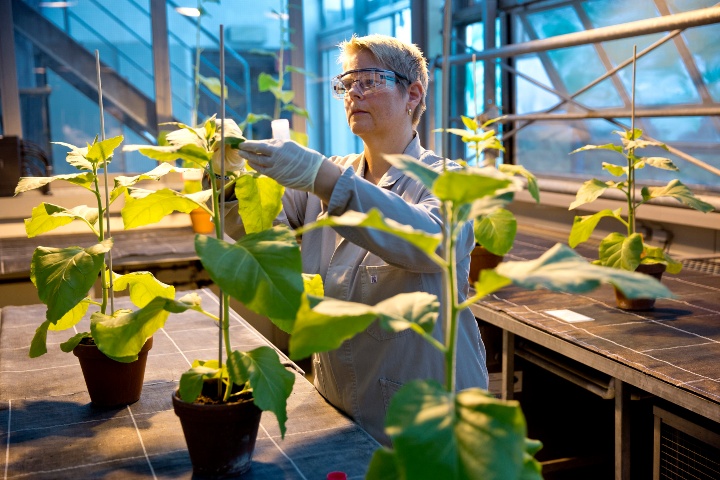Beyond Excellence Initiative, Collaborative Research Centers or EU projects, University of Stuttgart researchers are engaged in another dimension of research undertakings. These are often embedded in Federal or international research initiatives and consortiums that aim to find solutions to basic questions trending in our society. Here are just few of these interesting projects and activities.
Copernicus: The largest initiative of the energy revolution
In launching the Copernicus Projects, the Federal Ministry of Education and Research (BMBF) started the to-date largest research initiative of the energy revolution. The goal is to develop new energy systems to the point where they can supply energy to all areas of Germany in a secure and stable manner, with due regard at the same time for economic and societal aspects. The University of Stuttgart and the STRise research association play a leading role in as many as two of the four successful project consortiums.
Copnernicus projects of the University of Stuttgart
In the “Industrial Processes” subject area, the contract was awarded to the SynErgie project led by Prof. Eberhard Abele (Technical University Darmstadt) and Prof. Alexander Sauer (University of Stuttgart). SynErgie is designed to create the technical and market-side conditions necessary for synchronizing the energy requirements of German industry with the fluctuating energy supply. By doing so, the project will contribute to the cost-effective implementation of the energy transformation and the integration of renewable energies. It is intended to position Germany as a leading supplier internationally of energy-flexible industrial processes and technologies.
The ENavi consortium for the “System Integration” topic area is represented by Prof. Ortwin Renn (Center for Interdisciplinary Risk and Innovation Research at the University of Stuttgart and Potsdam Institute for Advanced Sustainability Studies) as speaker and by Prof. Kai Hufendierk (University of Stuttgart) on behalf of the STRise research association. The project examines the energy revolution as a process involving all of society, with the objective being to make it socially, ecologically, and economically sustainable. At the core of the research plan is development of a navigation instrument that will provide advance notice of the effects and side effects that economic or political measures will produce.
Real-world laboratories
Real-world laboratories are a program launched by the state of Baden-Wuerttemberg that has researchers enter into real-world change processes as their experimental field. For example, in real-world laboratories they give advice and support to urban renewal or the introduction of new mobility and energy systems. In so doing, they involve practitioners from communes, social and environmental organizations or businesses and ordinary citizens in the research process. In an open-ended process knowledge is created that is intended to make a practical impact.
Current Projects
- Campus hoch i [de]
- MobiLab
- Kima-RT-LAB, climate-neutral heat supply for the city of Reutlingen
- Real-world laboratory GWP, industrial heat pumps in heating systems
- Real-world laboratory railway vehicles
Completed Projects
Project facility NanoBioMater
In the inter-departmental Project facility NanoBioMater [de] biological and synthetic building blocks are used to develop functional materials for medical technology, diagnostics, and environmental analysis. Researchers from the natural sciences, materials science, and engineering sciences work on interdisciplinary projects dealing with all kinds of intelligent, biocompatible materials. The ultimate goal is to produce novel, nanostructured biogenetic-synthetic formulations for cell culture and tissue replacement as well as miniaturized environmental, foodstuffs, and medical diagnostic systems.
Contact

Birgit Harrer
Head of Department / Deputy head of division / Coordination of applications for DFG Collaborative Research Centers and Transregios




